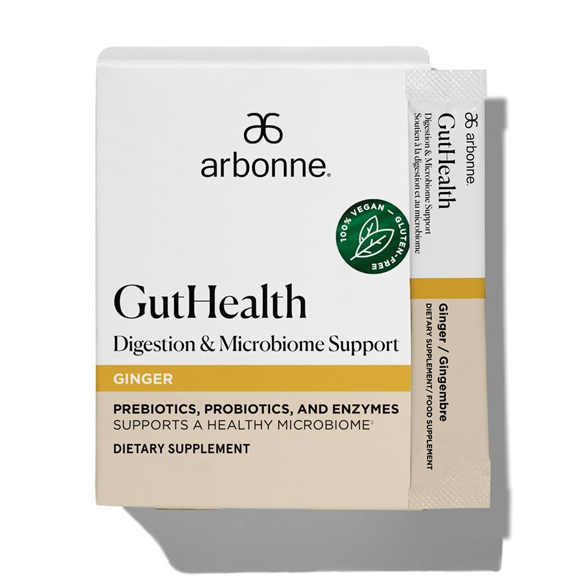Discover the Key to Food Digestion and Resistance With Intestine Health And Wellness Support

Understanding Gut Wellness
Understanding gut wellness is important for general well-being, as it plays a significant duty in food digestion, immunity, and also mental health. The gut, consisting of the intestinal system, is in charge of breaking down food, taking in nutrients, and getting rid of waste. A balanced intestine environment guarantees efficient digestion, allowing the body to use nutrients effectively.
Moreover, gut health and wellness considerably impacts the body immune system. The gut houses a considerable section of the body's immune cells, and a healthy digestive tract can aid fend off microorganisms and decrease swelling. Disruptions in gut wellness can lead to an over active immune action, potentially adding to autoimmune disorders and allergies.
In addition, the gut is often described as the "2nd brain" because of the gut-brain axis, a complex interaction network linking the mind and the digestive tract. This link affects mood, cognition, and psychological wellness. Concerns such as dysbiosis, characterized by an imbalance in digestive tract bacteria, have been linked with psychological wellness conditions, consisting of anxiousness and clinical depression.
The Intestine Microbiome Explained

The digestive tract microbiome, a diverse neighborhood of bacteria living in the gastrointestinal system, plays a crucial duty in preserving gastrointestinal health and general well-being. Consisting of trillions of germs, viruses, fungi, and various other germs, this complicated environment help in the food digestion of food, the synthesis of crucial nutrients, and the law of metabolic procedures.
Each individual's digestive tract microbiome is unique, influenced by variables such as diet plan, way of living, genetics, and environmental exposures. A balanced microbiome sustains ideal food digestion by damaging down complicated carbohydrates, creating short-chain fats, and assisting in the absorption of nutrients. On the other hand, an imbalance, commonly described as dysbiosis, can result in digestive problems, including short-tempered bowel disorder (IBS) and inflammatory digestive tract condition (IBD)
Research has actually demonstrated that a varied microbiome is connected with better health results, emphasizing the importance of nutritional selections in supporting these bacteria. Foods rich in fiber, probiotics, and prebiotics, such as fruits, vegetables, and fermented products, can promote a healthy microbiome. Comprehending the digestive tract microbiome is crucial for developing targeted interventions targeted at improving digestive system health and wellness click here now and protecting against gastrointestinal diseases.

Connection Between Digestion and Resistance
A robust link exists in between food digestion and resistance, highlighting the important function of the intestine in keeping overall health. The stomach system is home to trillions of microorganisms that create the intestine microbiome, which considerably influences both immune actions and digestive procedures. This complex ecosystem aids in damaging down food, taking in nutrients, and supplying vital metabolites that sustain immune feature.
When food digestion is effective, the digestive tract barrier continues to be undamaged, protecting against damaging virus from getting in the bloodstream (gut health supplement). Conversely, bad digestion can result in a discrepancy in the microbiome, causing dysbiosis, which has actually find more info been linked to different health concerns, including autoimmune illness and inflammatory problems. Approximately 70% of the immune system stays in the gut-associated lymphoid tissue (GALT), which engages very closely with the digestive tract microbiome. This interaction ensures that the body immune system can efficiently compare damaging and beneficial substances.
Tips for Supporting Digestive Tract Health
Supporting gut health is essential for keeping both digestion efficiency and a well-functioning immune system. To cultivate optimum intestine wellness, think about including numerous sensible approaches into your day-to-day regimen.
First, prioritize hydration. Consuming sufficient water sustains digestion and helps keep the mucosal lining of the intestines. Additionally, routine exercise can boost digestive tract mobility and promote a varied microbiome.
Conscious eating methods are likewise important. Eating food completely and consuming gradually can aid digestion and prevent overindulging, which may emphasize the gut. Moreover, handling stress and anxiety via methods such as meditation, yoga exercise, or deep-breathing workouts can positively influence intestine health and wellness, as anxiety is recognized to disrupt digestive procedures.
Incorporating prebiotics and probiotics into your routine is another efficient go to this web-site method. While certain foods will be talked about later on, recognizing the value of these elements is vital. Prebiotics serve as food for useful digestive tract germs, while probiotics present live beneficial microorganisms.
Last but not least, prevent too much use anti-biotics, as they can disrupt the balance of digestive tract vegetation. By following these pointers, you can dramatically contribute to the upkeep of a healthy and balanced digestive tract, which is necessary for overall health and vigor.
Foods That Promote Gut Health

Fermented foods, such as yogurt, kimchi, sauerkraut, and kefir, are rich in probiotics, which are useful germs that support digestive tract vegetations and improve food digestion. These foods can aid restore balance in the gut, especially after antibiotic use or digestive system disruptions.
In enhancement to fermented alternatives, prebiotic foods, such as garlic, onions, asparagus, and bananas, act as nutrition for these probiotics, promoting their growth and activity. These soluble fibers sustain digestive tract mobility and can relieve problems like bowel irregularity.
In addition, incorporating high-fiber foods, consisting of whole grains, vegetables, fruits, and veggies, is essential for preserving a healthy and balanced gut. Fiber help in normal defecation and assists protect against digestive system conditions.
Lastly, omega-3 fats found in fatty fish, flaxseeds, and walnuts have anti-inflammatory residential or commercial properties that can further sustain gut health and wellness. Emphasizing these foods in your diet plan can result in a robust digestive system and improved immune feature.
Verdict
In verdict, prioritizing digestive tract wellness is important for optimizing food digestion and enhancing resistance. A balanced gut microbiome, affected by nutritional selections and lifestyle elements, plays an important function in nutrient absorption and inflammation reduction.
Recognizing gut health is vital for total wellness, as it plays a substantial duty in food digestion, immunity, and even mental health. The digestive tract houses a considerable portion of the body's immune cells, and a healthy and balanced digestive tract can help fend off pathogens and lower inflammation.Additionally, the intestine is commonly referred to as the "2nd brain" due to the gut-brain axis, a complicated communication network connecting the brain and the intestine.A durable connection exists between digestion and immunity, highlighting the vital duty of the digestive tract in keeping general health and wellness.In final thought, prioritizing digestive tract wellness is important for maximizing food digestion and enhancing resistance.
Comments on “Gut Health Supplement: The Natural Way to Achieve Better Digestion”